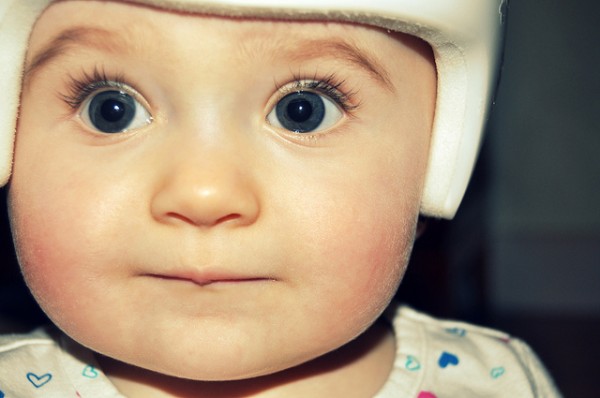Baby Helmets Do Not Correct Head Shape

Helmets designed to correct the shape of an infant's head after he or she develops head-flatness are largely ineffective, according to a recent study that compared success of head-shape corrective therapy with and without the aid of a helmet.
The study, published in the British Medical Journal (BMJ), details how researchers treated six month old babies with head-flatness -- a condition that commonly occurs in children left to sleep on one side for too long.
According to the study, 84 six-month old babies who had experienced a moderate to severe flattening of the head were selected to be treated and observed by researchers. Half of these babies were then randomly chosen to wear a custom-made "corrective helmet" for 23 hours a day for six months. Over that same period of time, both baby groups were treated with standard head-shape corrective strategies, which consist of tuning a baby's head from one side to the other while they sleep to ensure the child's soft skull does not continue to flatten to one side.
When the children reached two years old, the researchers interviewed the parents of each participant and assessed the state of the baby's head shape.
According to the study, there was no significant difference between the success of both groups, where 25.6 percent of those who wore helmets and 22 percent of those who did not achieved "normal" head shape by the end of the study.
Parents also reported a number of adverse side-effect from using the helmet, with nearly 96 percent of all parents reporting their child experienced skin irritation, 76 percent reporting an unpleasant smell from the helmet, and 71 percent reporting sweating. One third of these parents also reported their child experiencing some kind of pain while wearing the helmet.
"Based on the effectiveness of helmet therapy, and the high prevalence of side-effects and high costs, we discourage the use of a helmet as a standard treatment for healthy infants with moderate to severe skull deformation," the authors of the study concluded.
The study was published in the British Medical Journal on May 1.
May 02, 2014 12:13 PM EDT





